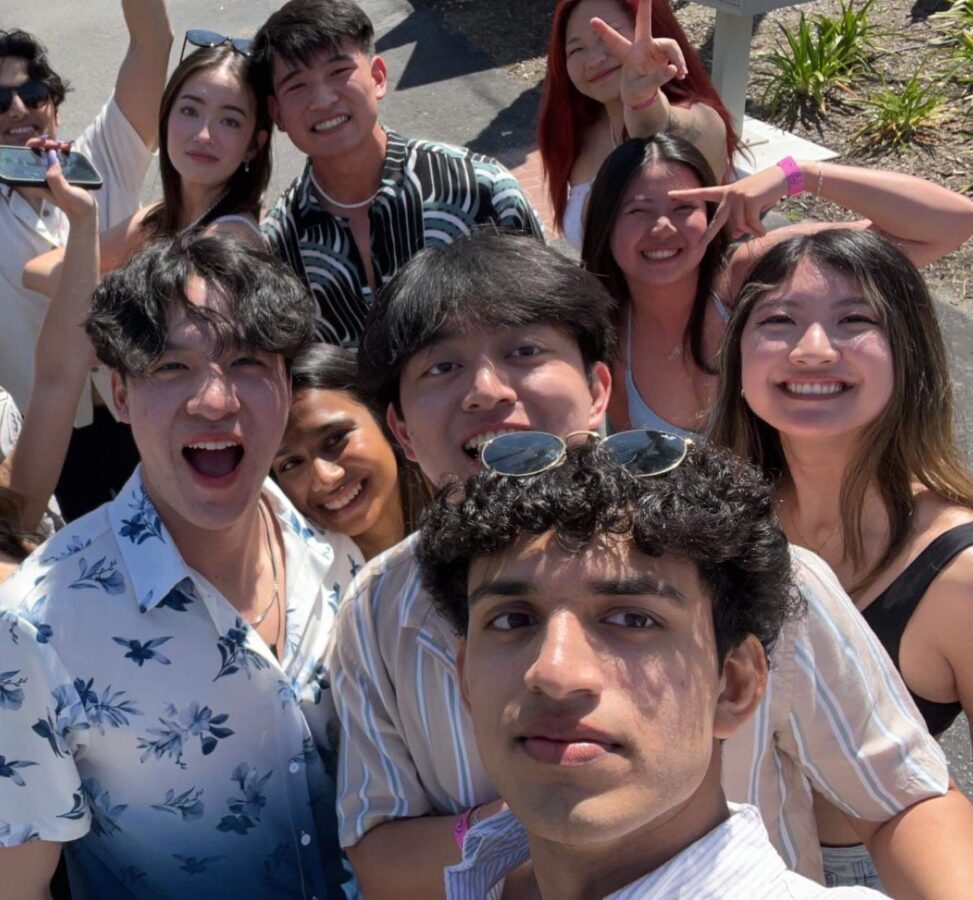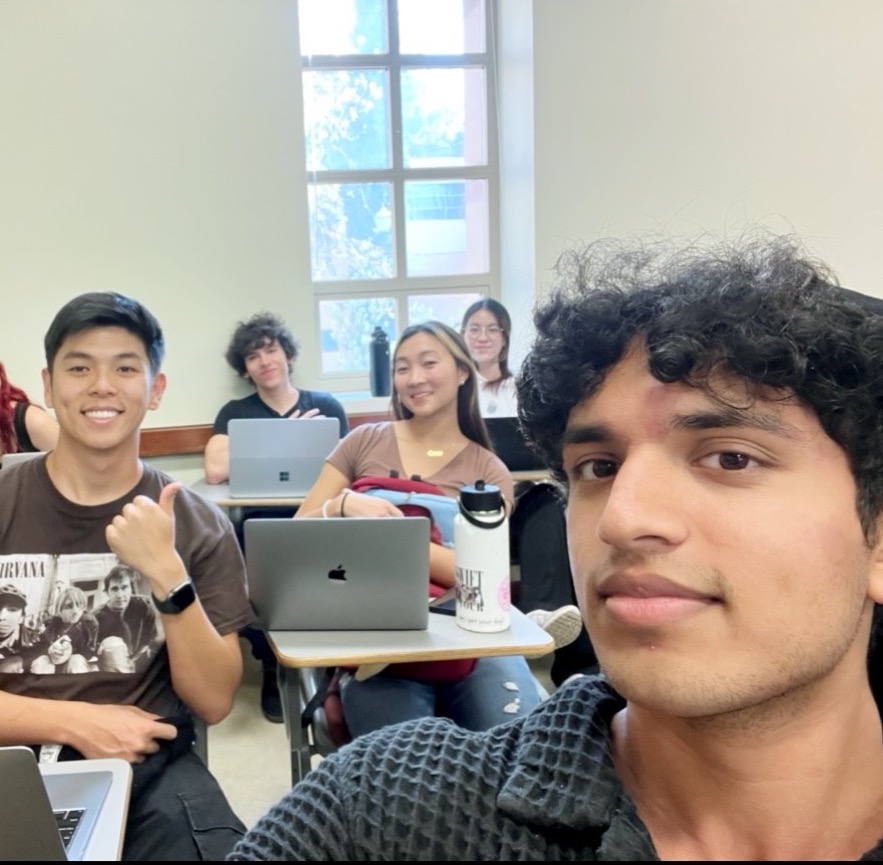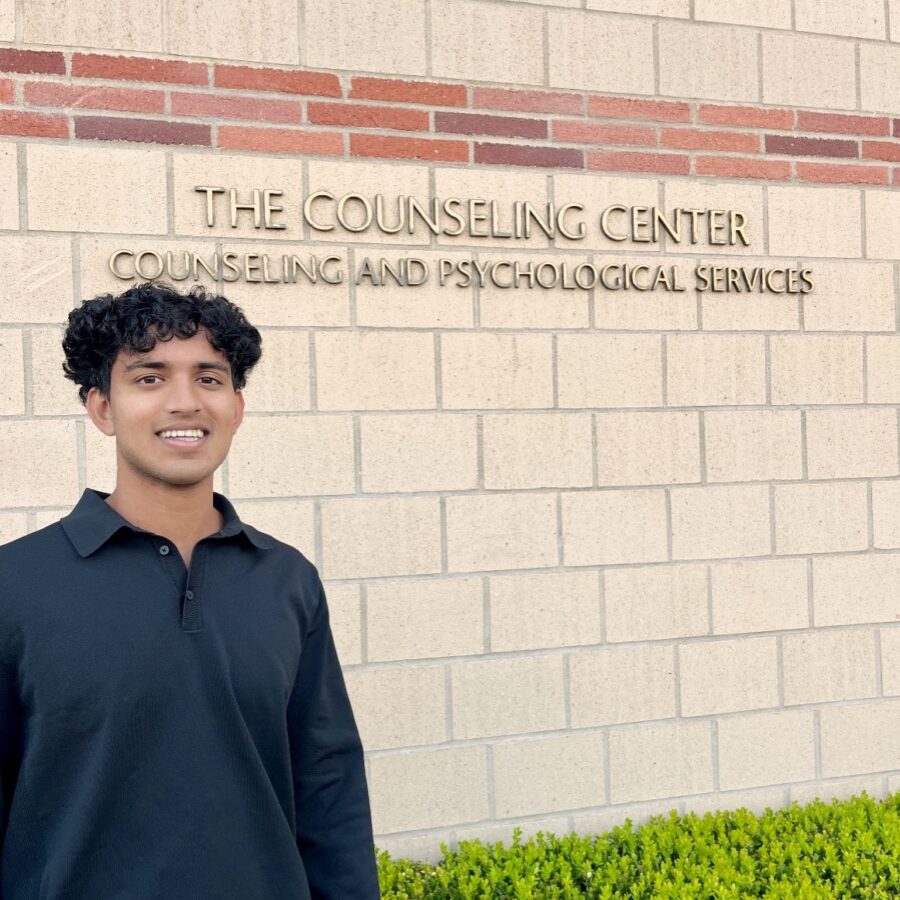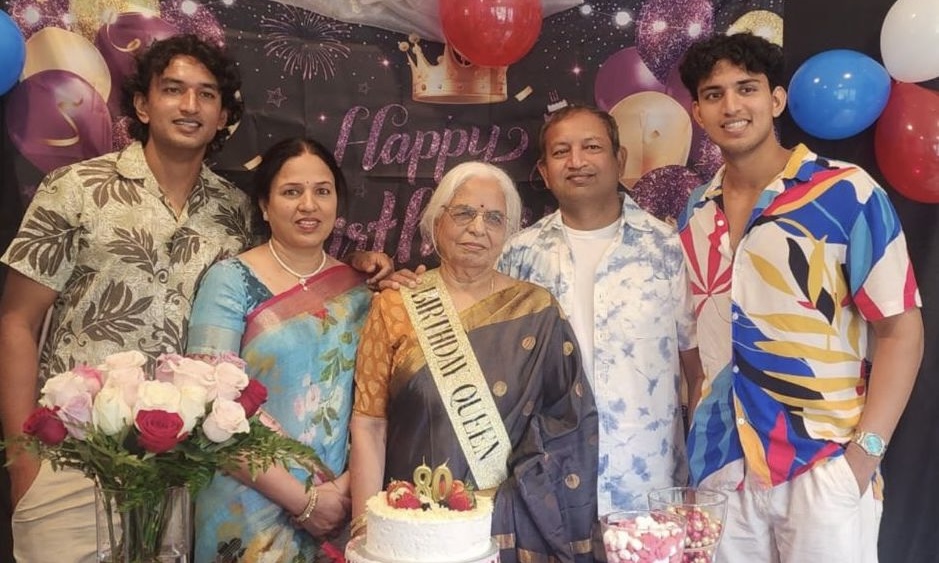I started my college career like many Bruins do: passionate about a cause and determined to make a difference in the world. For me, that cause was mental health. I began as a public affairs and policy major, eager to learn more about how policy and decision making can improve mental health access and treatment in America. Today, four years later, I graduate instead with a degree in Statistics and Data Science.
But this is not a story about changing priorities. In fact, if anything I am even more passionate, more dedicated, and more focused on mental health today than when I first set foot on campus. Instead, it’s a story about how perspectives can change, even if your goal remains the same.
“Many people mistakenly assume that Statistics and Data Science is about crunching numbers, filling spreadsheets, and making graphs look pretty. But at its core, it’s deeply human.”
Mental health challenges have always been a part of my life, affecting close family members and friends ever since I was a child. Growing up in Minnesota, I watched my older brother struggle with mental health issues that were made worse by community stigma. A few months ago, a family friend of mine took their own life. I’ve learned about the critical importance of genuine mental health support and I’ve seen firsthand how these struggles can often be invisible to others.
Of course, my experience with mental health is not unique. I know many people here at UCLA are going through challenges of their own, or have friends who are – even if they don’t realize it. Which is exactly what makes this cause so important to me.
These experiences led me to join Wazo Connect, an on-campus organization pairing experienced mentors with underclassmen for 1-on-1 mental health support. In my training to become a mentor, I discovered that 1/6 of Bruins receive mental health services at CAPS. Moreover, 25% of those who receive this counseling have reported suicidal ideation in the last month.
This desire to do more is what eventually, perhaps surprisingly, led me to statistics and data science. Many people mistakenly assume that Statistics and Data Science is about crunching numbers, filling spreadsheets, and making graphs look pretty. But at its core, it’s deeply human. This department provides students with real tools to enact positive change in their communities. I learned to turn numbers into narratives that foster real-world solutions to all kinds of societal challenges. And I can prove it.
Bruincare AI is an app I designed with the direct help of the statistics and data science department and you can use it right now.




During my time as a mental health advocate on campus, I noticed that some of the needs my fellow Bruins were facing were being overlooked. Most pressing was wait times between expressing a need for mental health support and getting an initial consultation. My platform leverages the latest generative AI technologies to provide UCLA students with immediate, 24/7 mental health support while ensuring their anonymity and privacy. It’s designed to assist, not replace CAPS by aiding in consultation and scheduling, thus addressing the urgent need for timely care and overcoming the barriers of stigma associated with seeking help. By facilitating on-demand mental health assessments and streamlining the pre-consultation process, Bruincare AI aims to improve the accessibility of mental health resources for the UCLA community.
I couldn’t have done any of this without the education and support I received from the Statistics and Data Science department. Technically, courses such as STATS 101C and STATS 101B taught me how to program a highly functioning AI model and lead the appropriate experimental design for moving this project into a proper study with evidence-based findings. At the same time, courses such as DGT HUM 101 and STATS 140XP taught me how to turn data into narratives and move from numbers, models, and spreadsheets to solving real-world challenges for community-based clients.
“Bruincare AI is an app I designed with the direct help of the statistics and data science department and you can use it right now.”
But it wasn’t just the classes that helped me along the way. The ever-supportive faculty in the department made sure my idea came to fruition. In particular, Dr. Vivian Lew opened my eyes to the importance of ensuring AI applications met ethical considerations, maintained data confidentiality, and provided community-safe responses. The more time I spent in statistics and data science, the more I understood its capacity for good in the world.
The extensive combination of technical, narrative, and human skills I learned from the department’s curriculum directly translated into the impact I have been able to make with Bruincare AI. Although we are in the experiment phase, the rollout of this innovative application to 300+ UCLA students in need of mental healthcare has expanded my ability to make a larger impact on my community. With the help and cooperation of other institutions on campus, I hope to one day make Bruincare AI a cornerstone of mental health resources here at UCLA.
Although I graduate from UCLA today, I am taking my passion for revolutionizing mental health care with me. I will be starting full-time as a Data Scientist at Adobe in their San Francisco office where I hope to learn even more about how data science can change the world. After work, I will be building a broader and more accessible version of Bruincare AI, looking to expand its impact beyond UCLA’s boundaries. I’m confident that the skills, experience, and values that I’ve learned here at UCLA have prepared me to take on these bigger challenges ahead.
To all the current and future physical science students, I want to say this: your impact is way more than physics equations, math proofs, or statistical analysis. Be genuine, be bold, and create a future with people in mind. Even the most technical fields – including Statistics and Data Science – are more human than we realize. In fact, in today’s world our discipline needs your humanity more than ever before.
Anish Dulla graduates this June with a degree in Statistics and Data Science. His app, Bruincare AI, allows for 24/7 access to immediate mental health support and aims to help UCLA Counseling and Psychological Services with triage and patient support. You can sign up to use it here.
 Anish Dulla Graduates this week with a degree in Statistics and Data Science.
Anish Dulla Graduates this week with a degree in Statistics and Data Science.